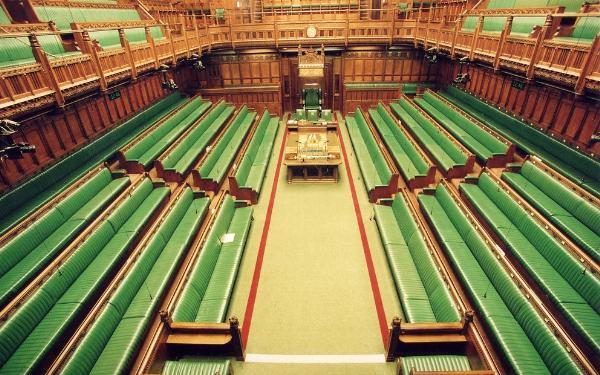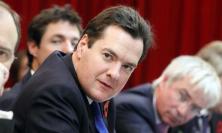On 22 February, the Commons will debate the proposals of the Committee for the Reform of the House of Commons. Joe Egerton draws a comparison between the contemporary Parliamentary reformer, Dr Tony Wright MP, chair of the Committee, and the Jesuit political theologian, Robert Parsons, who died in Rome four hundred years ago.
On 1 December 1581, a one-time favourite of Elizabeth and protégé of the Earl of Leicester was executed on a charge of treason. The execution of an ordained priest who stood as high in profile and in the court’s esteem as Edmund Campion was an event without precedent in Elizabeth’s reign. Although a few priests had suffered death, most were exiled or imprisoned. Nicholas Heath, Mary’s Archbishop of York, who opposed the Act of Supremacy in the Lords on Elizabeth’s accession, had been allowed a comfortable retirement.
The execution of this gifted man had a profound effect on his Jesuit Superior on the Mission to England, Robert Parsons, and the circumstances in England that led to this event prompted Parsons to abandon his previous commitment to a spiritual road to the recovery of England to the faith.[1] For the next twenty-five years, Parsons, a former Fellow of Balliol College, Oxford,[2] devoted his formidable intellect to the overthrow of the tyranny of the Cecils and the Elizabethan regime. In The Conference on the Next Succession, Parsons developed a theory of constitutional government (although he consistently denied that he was the sole author the Conference), repeating the Catholic proposition that government derived its authority from the people,[3] but making the crucial addition that the consent was revocable.[4]
Parsons was to develop a practical way of implementing these ideas in manuscript notes known as the Memorial on the Perfect Reformation of England, eventually published in 1690.[5] The best way to understand the Memorial is as the first election manifesto – one of the reasons that it gripped the imagination of the young Disraeli.[6] The last decades of the sixteenth century saw in the Puritans the emergence of a party in the Commons.[7] Had there been free elections, there would have been a powerful Catholic party and indeed, there is a respectable school of historical thought[8] that holds that had there been a general election at any point in Elizabeth’s reign, the Catholics would have won.[9]
The centrality of the Commons
Chapter X of the Memorial sets out Parsons’ reforms designed to secure a freely elected and effective Parliament. It opens with this statement:
For that the English Parliament, by old received custom of the Realm, is the Fountain, as it were, of all publick Laws, and settled Orders within the Land, one principal care is to be had that the high Court and Tribunal be well reformed...
Parsons is re-asserting the Parliamentary constitution from 1370 against the absolutism of the Tudors. [10] The Select Committee for the Reform of the House of Commons, under the chairmanship of Dr Tony Wright,[11] was established in July 2009 to remedy a recurrence of this disease: the domination of the executive over the Commons in the creation of Laws. The Committee’s first report was published in November 2009, and its proposals will be debated on 22 February in the House.
Parsons and Wright: the same agenda for reform
Parsons aimed to set out measures to make the Commons an effective, representative legislative chamber. Elections, he said, must be free; the small borough constituencies should be suppressed and the larger towns should be represented. These are the great reforms that established the nineteenth century legitimacy of the Commons. Parsons also discussed how ‘Godly’ candidates were to be selected – a live issue today. He included proposals for the way in which the House should work, arguing that when a Bill was introduced, there should be two major speeches, one setting out the advantages and another the disadvantages of what was proposed – Parsons developed the idea of a loyal opposition. If Elizabeth had been succeeded by a Catholic prince, we might have added to a list of Parliamentary gladiators (Gladstone and Disraeli, Pitt and Fox) Robert Parsons and Robert Cecil.[12]
Of direct relevance to the resolutions to be debated in the Commons on 22 February arising from the Wright report is Robert Parsons’ proposal for a Business Committee: ‘a good manner of proposing matters in the Parliament might be first to appoint four or five Commissioners, together with the Speaker, to view and examine the Bills that are to be exhibited and to reject such as are out of order[13]; and for the other to propose so many in one day as time permits, to open and lay down the reasons on the one side, and the other; and...’There then follows a discussion of arrangements to ensure that important or contentious measures received adequate time (by which Parsons meant days, not hours). The Wright Committee proposes first establishing a Committee to discuss backbench business and then, when this is working, to move to a full Business Committee: ‘The task of assembling a draft agenda to put to the House should be undertaken by a unified House Business Committee, comprised of representatives of all parts of the House with a direct interest: backbenchers, Government and Opposition. The House Business Committee should be chaired by the Deputy Speaker, who would have been elected by the House as a whole to that office with this function partly in mind.’ This is a modern version of what Parsons proposed.
Harriet Harman, the Leader of the House, is proposing a motion to establish a Committee to deal only with backbench business. Dr Wright, with support from across the House including both Conservative and Liberal Democrat shadow leaders, Sir George Young and David Heath, will seek to amend the Government resolution to ensure that establishing a Backbench Committee is not the end of the process but a prelude to the establishment of a Committee that does what Parsons envisages: allows the House, not the executive, to determine how much time should be given to government proposals.
E-petitioning: giving us a voice
The Wright Report was weakest, as Peter Riddell observed in The Times,[14] in its proposals for engaging the public. The Reform Committee failed to put forward detailed provisions to ensure that the Commons will debate proposals endorsed by large numbers (the Leader of the Opposition has suggested 1 million) in an e-petition. Although Parsons of course did not know of the potential of the Internet, the entire thrust of his discussion of the Reform of the Commons was to make it a body that acted for the whole nation at a time when deep divides threatened to (and in 1605 did) create a situation in which extremists might resort to violence. His reforms were intended to allow the nation to unite.
The same surely applies today. E-petitioning would allow groups who feel alienated from our constitutional system to compel Parliament to give serious attention to proposals they themselves formulate while leaving with Parliament the right to determine the law. E-petitioning offers a new potential for all those who feel that their voices are currently unheard, including religious believers and, indeed, secular atheists – who, as Newman observed, have a belief that there is no God – to engage effectively in the life of the nation.
Forty years after Parsons wrote his proposals for Commons Reform, England was torn apart by a disastrous civil war that might well have been averted had Parsons’ proposals to make the Commons a truly representative assembly been adopted. On 22February the Commons can, through following the path laid out four centuries ago by Robert Parsons and more recently by the Wright Report, reassert its role as the true representative of the nation and enable disagreements that could so easily lead to violence on the streets to be resolved through e-petitioning, investigation in genuinely independent select committees and debate in the Chamber.
Envoi: The need for political theology
We have so compartmentalised our lives that we separate the religious from the political. The sixteenth century theologians who pondered constitutional problems that we still have to resolve did so in a tradition in which political engagement was part of life directed towards God.
The idea that the consent of the people is essential to civil law was set out by the last of the Western Fathers, St Isidore of Seville (c560-636), who made this consent integral to the definition of lex. St Isidore’s definition was re-affirmed by St Thomas Aquinas[15], and this tradition shaped the thinking of two great Jesuits, St Robert Bellarmine and Francisco Suarez. Take away the consent of the people and human law loses its (morally) binding force. Robert Parsons applied this to England: he passionately believed that a House of Commons that is the embodiment of the people as a whole would be an important feature of a kingdom in which we can live the life to which we are called by God, a life he described in A Christian Directory: Guiding men [and women] to their eternal salvation.
It is this link between politics and religion that gives such force to Cardinal Keith O’Brien’s appeal on behalf of the British people: ‘On behalf of very many suffering and bewildered people, I call on those in public service of whatever kind who have failed us to reclaim the high standards which we expect of them and to give the example required of them to all in our country, however difficult it might be to implement this.’[16] Tony Wright has given MPs an opportunity to reclaim high standards on 22 February.
Joe Egerton is a management consultant specialising in financial services and co-founder of Ignacity.
This article is developed from a talk given to Figures and Rudiments (Years 7 and 8) at Stonyhurst St. Mary’s Hall on Robert Parsons as founder of Stonyhurst.
[1] Carrafiello (Robert Parsons and English Catholicism 1580 -1610) argues against the general consensus that the Jesuit Mission of 1580/81 was a spiritual, not a political, venture and claims that Parsons always had a political agenda. His evidence is very thin, often requiring him to interpret phrases in the light of post 1580 events, which makes his arguments circular. We should however recognise that the modern separation between ‘the moral’, ‘the legal’, ‘the religious’ etc. was entirely alien to 16th century thought, which largely accepted Aristotle’s proposition that the way we make choices as individuals was inextricably intertwined with the society in which we live, so religion and politics necessarily interacted.
[2] Tony Wright is also a Balliol man: he read for his doctorate there, achieving it 399 years after Robert Parsons was forced to resign his fellowship.
[3] Maintained by Parsons’ (1546-1610) slightly younger Jesuit confrère, Francisco Suarez (1548 -1617).
[4] Suarez argued that the transfer of power from the people (by assent to a coronation) was irrevocable; Parsons argued that it was revocable, if the king broke the coronation oath (e.g. by change of religion) and thus provided a philosophical basis from which our modern idea of choosing and being able to dismiss a government derives. Parsons is thus the founder of constitutional thought. Hobbes’ Leviathan, which is the great statement of absolutist political philosophy, devotes much space to dealing with religion and in particular to refuting the position that the Pope has a spiritual authority independent of and superior to that of any earthly monarch. Leviathan is in many ways a reply to Parsons – even if Hobbes might well have set out all its doctrines anyhow, Leviathan’s claim to be one of the greatest examples of the English language may well rest on a certain animosity towards the Jesuit.
[5] An Anglican clergyman called Gee obtained possession – his foreword suggests not entirely properly – of what he said was one of only two copies of the Memorial in England: the copy given by the Jesuits to King James II of England and VII of Scotland. He regarded publishing Parsons’ words as the greatest contribution he could make to securing the protestant successions and maintain disabilities on Catholics.
[6]Both Coningsby and Sybil draw heavily on Parsons. Disraeli acknowledged his indebtedness to a Jesuit called Rebello in an autobiographical passage in Coningsby – Rebello is clearly Parsons.
[7] See (Thomas) Erskine May – early editions
[8] The Victorian Tudor historian A F Pollard argued that under universal suffrage, Elizabethan England would have returned the Pope. In a series of articles in the Church Times, Patrick Collinson – quoting Pollard with respect – commented that at the time another change of religion appeared ‘more likely than not’. The Church Times articles are reprinted in Not Angels, but Anglicans, see in particular chapters 16 and 17. Patrick Collinson is Emeritus Regius Professor of history at Cambridge. Canon Judith Maltby, a Fellow of Corpus Christi, Oxford, described a growing tendency among historians to think of ‘a long reformation’ – referring, albeit sceptically, to Nicholas Tyacke’s (Emeritus Professor at UCL) pushing the reception of reformed Christianity as late as 1800.
[9] The possibility of a Catholic succession was never far from the minds of Elizabeth’s ministers. When the Fourth Duke of Norfolk conspired to marry Mary Queen of Scots, Elizabeth herself is reported to have feared she would be deposed within months of such a marriage. Despite this, Elizabeth herself refused to give her consent to an Act of Parliament barring Mary from the throne.
[10] In 1399, the Lords and Commons deposed a king and bestowed the crown by resolution of both Houses; they did the same in 1483 by the Act Titulus Regius. There were several occasions when the Lords, with the support of the Commons, took control of the government of England. Disraeli reckoned the power of Parliament during the reign of Henry VI was a great as it was in 1689. The power of Parliament was steadily eroded during Henry VII’s reign – Henry’s Parliament became known as ‘the obedient Parliament’. Henry VIII reduced Parliament to the status of the Reichstag under Hitler.
[11] Dr Tony Wright is MP for Cannock and chairs both the Public Administration and Reform of the House of Commons Committees. Rebuilding the House, the report of the Reform Committee, is available at http://www.publications.parliament.uk/pa/cm200809/cmselect/cmrefhoc/1117/111702.htm or as a downloadable pdf at http://www.publications.parliament.uk/pa/cm200809/cmselect/cmrefhoc/1117/1117.pdf. The government’s response was given by the Leader of the House in a written Parliamentary answer to be found in Hansard for 9 February 2010 and resolutions will be debated on 22 February 2010. There were repeated demands for an earlier debate during Business Questions in the House. There was a meeting of the Reform Committee on 10 February 2010, at which the Leader, and her shadows, Sir George Young and David Heath, gave evidence. The transcript is not on the website but a video recording can be accessed from http://news.parliament.uk/2010/02/committee-on-reform-of-house-of-commons-holds-evidence-session/ .
[12] Although Parsons proposed an oath of allegiance that at first sight might have been unacceptable to a protestant, in practice throughout the sixteenth century politicians proved sufficiently flexible for such oaths not to be an obstacle; William Cecil, Lord Bughley (1520 -1598) had, under Mary, welcomed Cardinal Pole on his arrival in England in 1554 and sat in the Parliament of 1555, although not that of 1558. His son would doubtless have demonstrated a similar flexibility.
[13] Parsons used the word ‘impertinent’ – by which he does not mean ‘cheeky’ but simply ‘not pertinent’
[14] How to give the public a louder voice: ‘The report is too cautious on public involvement, though it seeks to revive stalled talks on electronic petitions. Far more radical thinking is needed on giving voters the power to have issues debated by MPs and to influence draft bills.’ The Times, 24 November 2010: http://www.timesonline.co.uk/tol/comment/columnists/peter_riddell/article6928803.ece
[15] ST Ia IIae Q95 art 4 Note, however, that St Thomas here uses Aristotelian terminology – what is called ‘democracy’ is a bad form of government, and is to be equated with mob rule; the good form of government, politeia in Aristotle, is the system that St Isidore and St Thomas see as producing lex or law. In the translation to which the link goes, the Dominican translator of St Isidore’s words describing such a constitution renders them as ‘Lords and Commons’.






